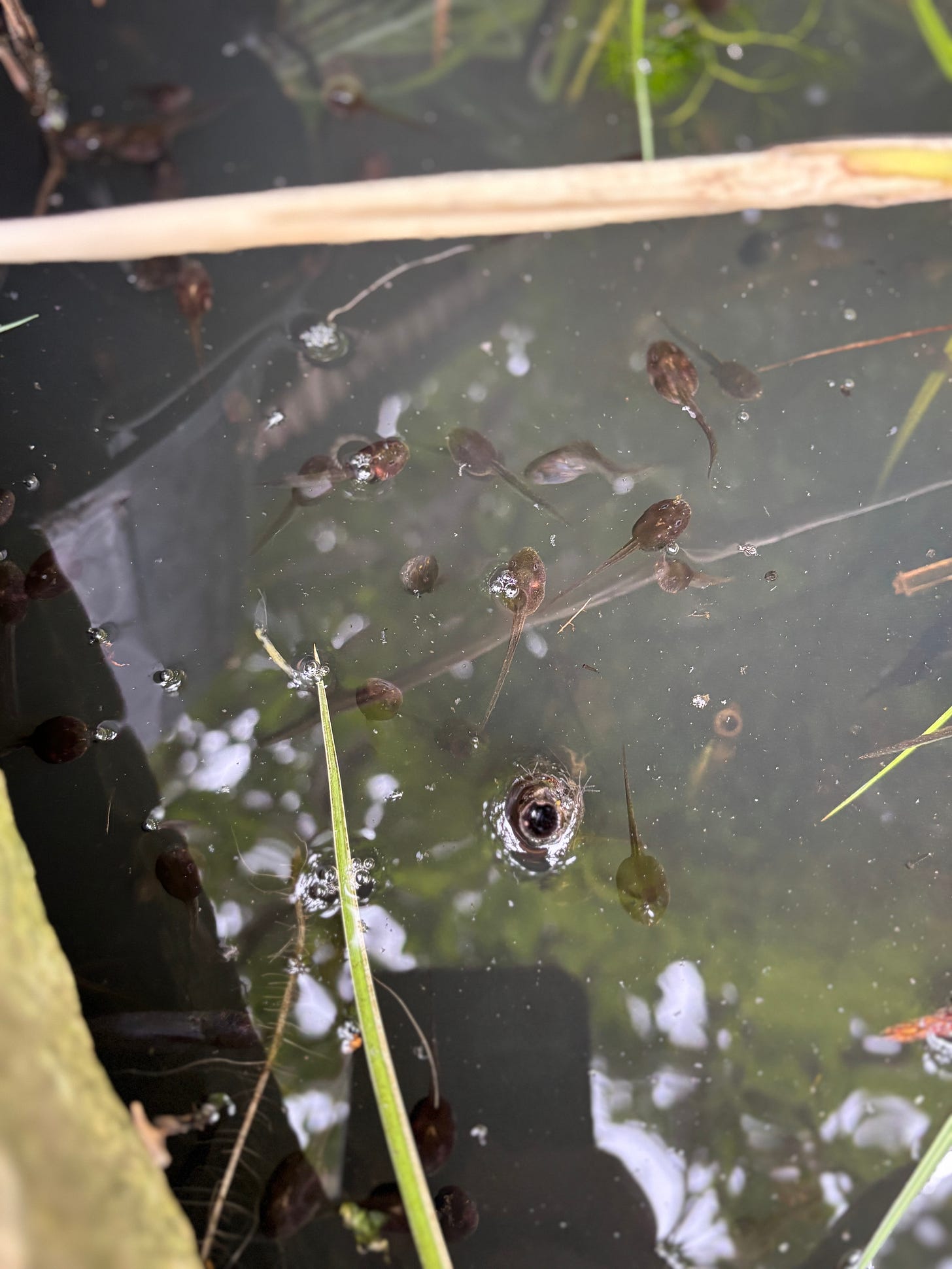You’re striving all the time. You’re striving to meet the description and follow the rules that you know someone else made up. If you could just find that person, just ask them, “tell me those rules and I will follow them” then you might stand a chance. But always, there is the claim that there are no rules. These rules, that everyone else seems to know. It’s all in your head.
You know this is bullshit. You see the consequences of those rules every day. You see how the rules bend other people out of shape. You don’t stop to consider how crooked you are yourself after all those years of contorting to rules that make no sense, that don’t help you, that were never made to fit your body.
Instead you fume with the sensed injustice of the effect on others. Not from some altruistic tendency – though you remember, don’t you, writing in your 14-year-old journal, that you wanted to rid yourself of the I-voice entirely. Because it was selfish. You wanted to erase yourself, to not be a person. Because that is the rule you were trained to accept. Don’t have needs. Don’t exist. And then maybe you will be acceptable. Then maybe others will not turn to you with scorn and say you’re nothing special.
Not altruism then, but self-blinkering. You tried to develop instead a carapace-ego; a structure that would look like the kind of person you thought might fit the rules. You thought you might look like, feel to others like a person worth considering, if only you did and said and reacted to things the normal way.
Listen, little one. The rules: I still hear them. They are a contradictory mess. Cultural signals with all the clarity of a crystal radio. You pick them up from the ether the same way you do other people’s emotions. Your hypervigilance as a child taught you to do this as a matter of survival. But you don’t need them to survive any more.
You do just fine, staring into the pond you made, in the garden you made, watching the tadpoles dance. You do just fine, feeling your body fluid and sleek as you swim the miles across the pool. You do just fine, writing the looped, reflexive way you do. Some might call it: poetry.
You knew the Overton window existed before you knew who’d named it. An exercise in the social parameters of what is acceptable and what is not.
The rules.
The idea comes from a conservative think tank – not the place from which you would typically draw inspiration. In principle, it’s a tool of political science, where politicians and policymakers drift their language and determinations with the tides of popular opinion.
Who shapes that popular opinion? This seems to be a moot point to the concept’s originators. The main principle is to use those tides to ride the crest of power. It’s the opposite of political service, or ethics, or the Nolan principles of public life. Ten years ago The Atlantic was publishing articles about the dangers of a political life without principles in the rising fascist form of the US President who I will not name. Now it seems that political life without principles, floating on an ocean of unverified popular opinion, is the norm.
Not your opinion though. Are you not people too?
The Overton window has shifted so far to the right of the political spectrum that it’s now acceptable for UK government ministers from what was once a socialist party to make wildly inaccurate and damaging claims that scapegoat the most vulnerable people. Claims like, “there’s an overdiagnosis of mental illness”, or that “nations depend on rules”, else the UK risks becoming an “island of strangers.”
When you were younger, you obediently followed the rules that said: “keep abreast of current affairs: it’s important for your education.” You avidly read The Guardian and The Economist, trying to make sense of a bewildering world that always assumed you knew the thing that came before. You swam in a sea of people who seemed to know things you didn’t. That didn’t stop. Because there are always people who claim to know things. And because you doubt, you listen.
The Overton window is a way of talking about a set of rules that nobody talks about. Because acknowledging rules means acknowledging the contingency of whatever it is you propose to claim as fact. Change is the only rule of the universe. But the rules – the social rules – pretend that everything was always the same. As if a nation dependent on rules is a simple fact; not that nations create rules, shape rules, can tear up the rulebook when it is evident that those rules are harming the most vulnerable people who exist within it.
These rules claim there is all the difference between the far-right anti-immigrant extremism of the late 1960s and 1970s and the rhetoric of now. Even when the two coincide alarmingly.
**
The rules exist. You know this in your bones, that are also my bones. You know it because you have felt it every day of your life; the rules that say you are governed by rules, which you are not empowered to make. The rules hold power over you.
But who makes the rules if not the people? Not one person, but many people, many decades, centuries even, of people.
And what if the rules said other things instead?
Things like:
Embrace Change (Octavia E Butler)
Not power over, but collective power. Power with. (Joanna Macy and Chris Johnstone)
Make the invisible visible (Starhawk)
We are deeply interdependent (Leanne Betasamosake Simpson)
Radical simply means grasping things at the root (Angela Y Davis)
Power is eroticised (Joan Roughgarden)
Nothing about us without us (disability activism)
What if, little one, all this time, you were listening to the wrong rules? Because they spoke louder, because they twanged against your heart and made you feel urgently, desperately less than.
And also.
What if, in all that time you spent curving your ear to pick up the frequencies, cadences, and intonations of those contradictory, gaslighting rules so that you could do it ‘right’ – what if that time were time well spent? Not because you will ever conform to them, or be enough for them.
But because once you know the rules that underpin the rules, you get to choose where you make them from. You get to build them from new sources.
You do just fine. You listened to the rules, so that you can make them differently.
**
Read: Octavia Butler’s The Parable of the Sower, Joanna Macy and Chris Johnstone’s Active Hope,Starhawk’s Empowerment Manual, Leanne Betasamosake Simpson’s Theory of Water, Angela Y Davis’ Women, Race and Class, Joan Roughgarden’s Evolution’s Rainbow, or James I Charleton’s history of disability activism Nothing About Us Without Us are mostly available via OpenLibrary (which usually has links to identify where you can get copies in your local library too), Bookshop.org, which supports local independent bookshops, or Abe Books, which is where I look for out-of-print, second hand or overseas books.
See: Check out Queer East Festival, on until 17 May at various cinemas across London. The British Library is exhibiting queer gardener Gertrude Jekyll’s boots during their UNEARTHED exhibition on gardens and gardening, on until 11 August.
Do: A creative invitation. If you like, write out your own list of rules. Share them (with me or with others). Talk about them (with me or with others). Challenge them (with me or with others). Rules are what we make of them. And they never stay the same.






Hi Jenny - this resonated so strongly with me...and uncannily with a piece of Jung that I happened to be reading last night (as one does). Have you come across the first essay in The Undiscovered Self, 'The Plight of the Individual in Modern Society'? Thank you for your words, Nicola
I'm wishing for an audio version of substack, for this, and everything you write after hearing you read this yesterday...